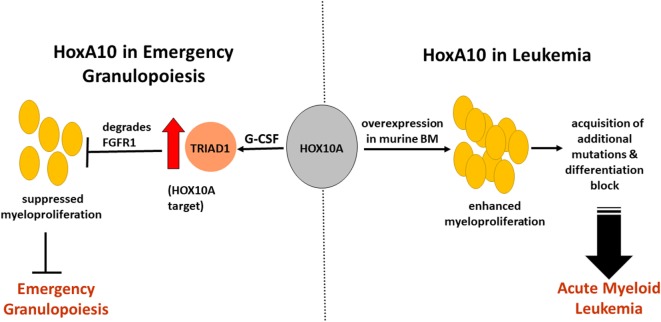Figure 1.
Impact of HOXA10 on acute myeloid leukemia (AML) development and emergency granulopoiesis (EG) through regulation of myelopoiesis. HOXA10 overexpression in murine bone marrow leads to enhanced myeloproliferation, which progresses into AML through acquisition of additional mutations and differentiation block. HOXA10 effects EG by regulating the gene ARIH2, which encodes TRIAD1, a ubiquitin ligase. In vitro stimulation of myeloid progenitors with granulocyte colony stimulating factor (G-CSF) showed HOXA10-dependent increase in TRIAD1 expression. Increased TRIAD1 expression degrades fibroblast growth factor receptor-1 (FGFR1), reduces the effect of FGF2, and terminates the effect of FGF2 on myeloid progenitor expansion. As G-CSF is the main mediator of EG, these processes result in termination of EG with HOXA10 being the prime regulator. Suppressed EG response during infections in leukemic conditions may serve as one of the causes of neutropenia.

